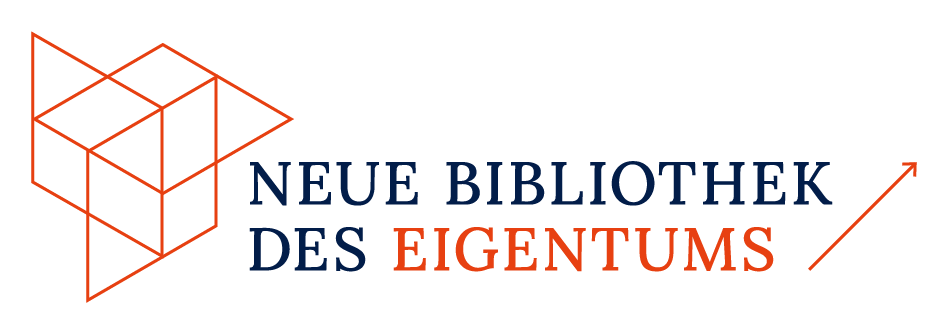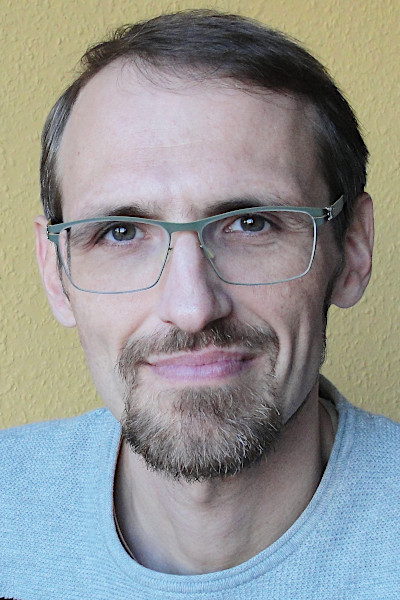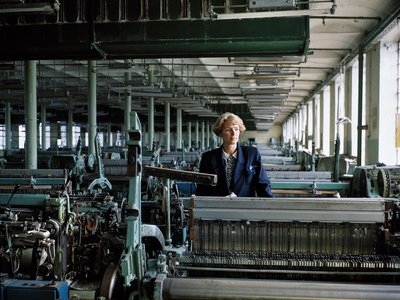Florian Peters is a historian specialising in the contemporary history of Poland and East Central Europe. After graduating from Christian Albrechts University Kiel, he received his Ph.D. in 2014 from Humboldt University Berlin for a thesis devoted to memory and politics of history in late socialist Poland. Before joining SFB 294 and Friedrich Schiller University Jena in April 2021, he worked as a Postdoc researcher at the Leibniz Institute for Contemporary History Munich–Berlin and at European University Viadrina Frankfurt (Oder). His current research focusses on social and economic dimensions of the post-socialist transformations in Poland.
Research Project
Take your destiny into your own hands. Privatisation and municipal self-government in post-socialist Poland
The SFB’s research project B7 addresses the most profound change in property regimes in recent European history: the privatisation of the formerly state-socialist economies in Eastern Europe since 1989. My research focusses on post-socialist Poland and includes a set of local case studies investigating the conflicts over the (re-)establishment of private and municipal property.
The institutionalisation of local self-government in Poland in 1990 drew heavily on notions of economic self-governance promoted by the unprecedented social movement of Solidarity in 1980/81. Hence, it was somewhat at odds with the neoliberal macro-economic shock therapy introduced at the same time. By analysing the contradictions and struggles arousing from this tension, the project aspires to add a historically informed perspective to ongoing debates on the results of post-socialist transformations, as well as to provide historical reflection for recent re-evaluations of communal property.
Activities
Recent Publications
Current academic publications
-
Peters, Florian (2025b): „“Small Group, Big Business”: Imagining Capitalism and Capitalists in Late Socialist Poland", in: Agnes Arndt / Kerstin Maria Pahl (eds.): Capitalist Cold. On Callousness and Other Economic Emotions in Europe and the United States, London: Routledge, pp. 179–203, Open Access: https://doi.org/10.4324/9781003351955-11.
-
Peters, Florian (2025a): „“They all talk about free market, but…” Concepts of Ownership Transformation and Privatization in Post-Socialist Poland and East-Central Europe“, in: Martin Schulze Wessel / Darina Volf (eds.): Changing Times, Persisting Legacies. The Uneven Development of East-Central Europe since 1989, Göttingen: Vandenhoeck & Ruprecht 2025, pp. 89–111.
-
Peters, Florian (2024c): „Zweierlei Wiederaneignung der postsozialistischen Stadt. Kommunale Selbstverwaltung und Privatisierung in Polen in den 1990er-Jahren“, in: Berliner Journal für Soziologie, 34 (2024), H. 4, S. 489–513, Open Access: https://doi.org/10.1007/s11609-024-00540-5.
-
Peters, Florian (2024b): „Old Walls Crumble, New Barriers Appear. Polish Perspectives on German Reunification and European Integration“, in: Kiran Klaus Patel (Hrsg.): Tangled Transformations. Unifying Germany and Integrating Europe, 1985–1995, Toronto: University of Toronto Press 2024, 56–82.
-
Peters, Florian (2024a): „Shock Therapy Mythologies. Contested Memories of Poland’s Balcerowicz Plan“, in: Wawrzyniak, J.; Pehe, V. (Hrsg.): Remembering the Neoliberal Turn. Economic Change and Collective Memory in Eastern Europe after 1989, London: Routledge, 22–38.
-
Peters, Florian (2023a): Von Solidarność zur Schocktherapie. Wie der Kapitalismus nach Polen kam, Berlin: Ch. Links.
-
Peters, Florian (2023b): „Inflation und Schocktherapie. Polnische Transformationserfahrungen“, in: Mittelweg 36, Nr. 6/2023, 108–126.
-
Peters, Florian (2023c): „Neoliberal Takeover? How the Social History of Economic Ideas Contributes to Historicising Post-socialist Transformations“, in: Forum Historiae 17 (2023), Nr. 2, 58–69. DOI: 10.31577/forhist.2023.17.2.5.
Download the complete list of publications.
Media and Podcasts
- Property rights versus tenants: Interview with Beata Siemieniako on the restitution of housing in Poland. Podcast episode for “Urban Political” and “appropriate”, 30.11.2023.
- “Die Ukraine, die Ambivalenzen des Nationalismus und wir.” Essay for Zeitgeschichte-online, 27.11.2023.
- “Die 'Neue Ostpolitik' - Neubewertung nach dem Angriff auf die Ukraine?”, Redaktionspodcast “Vergangenheitsformen” by H-Soz-Kult, 31.Oktober 2023, available online via H-Soz-Kult.
- Interview by Prof. Dr. Felix Wemheuer on the book: “Von Solidarność zur Schocktherapie. Wie der Kapitalismus nach Polen kam.” available online via Youtube.
Lectures (selection)
-
„Interim capitalism from below: Informal markets and the shifting of economic imaginaries in late and post-socialist Poland”, Paper presentation at the XI World Congress of the International Council for Central and East European Studies, University College London, July 21, 2025.
-
„Radikale Schocktherapie, behutsame Privatisierung: Polens Weg in den postsozialistischen Kapitalismus“, Lecture at the research center Transformationsgeschichte, Universität Leipzig, July 14, 2025.
-
„‘Alle reden vom freien Markt, aber…’ Zur Historisierung der neoliberalen Transformation in Ostmitteleuropa nach 1989“, Lecture as part of the workshop „‘Neoliberalismus’ als Deutungsparadigma der neuesten Zeitgeschichte“, Institut für Zeitgeschichte München, April 29, 2025.
-
“Communist direct democracy vs. liberal shock therapy: IMF-style "structural adjustment" and democracy in Poland”, Presentation on the conference “The Bretton Woods Twins and Structural Adjustment Programs in the Era of Neoliberal Globalization”, Corvinus University of Budapest, September 28, 2024.
- Book talks on "Von Solidarność zur Schocktherapie" at the universities of Warsaw, Cologne, Vienna, Tübingen and Heidelberg.
- "New Borders after the Fall of the Wall: Polish Perspectives on Europe and the West after 1989", Contribution to the 12th European History Forum "When does contemporary history begin? The historical-scientific examination of the 1990s in Eastern and Southeast Europe", Heinrich-Böll-Stiftung, Berlin, May 22, 2024.
- "Seit’ an Seit’ und doch getrennt. Die schwierige polnisch-ukrainische Nachbarschaft während des Staatssozialismus", Lecture at the 6th Congress on Polish Studies, Dresden, March 16, 2024.
- "German-Polish relations in the context of 1989/90 and the reunification of Germany", Statement on the panel "Geopolitics of memory in contemporary German-Polish relations“, University of Cambridge, March 5, 2024.
- "Conflicts over Privatisation and Restitution of Property in Post-socialist Poland", Lecture in the context of the SFB Annual Conference "Conflicts over Property", Erfurt, October 5, 2023.
- "Remnants of Workers’ Self-management. Employee Ownership and Local Self-government in Poland’s Privatisation", Lecture in the context of the Workshop "Transformations of Property in Post-Socialist Eastern Europe: Reconfigurations of Ownership and Alternatives to Private Property“, Jena, October 20, 2022.
- "Abgewickelt. Verraten. Für dumm verkauft? Polnische und ostdeutsche Erinnerungen an die postsozialistische Privatisierung als Ressource politischer Polarisierung", Lecture at the 41th congress of the German Sociological Association, Bielefeld, September 29, 2022.
Teaching
- BA-Seminar „Migration in modern Polish and East Central European history“ (WiSe 2020/21) (Europa-Universität Viadrina Frankfurt/ Oder)
- MA-Seminar „Rechtsterroristische Attentate der Zwischenkriegszeit in Deutschland und Polen: Rathenau – Narutowicz – Pieracki“ (WiSe 2020/21) (Europa-Universität Viadrina Frankfurt/ Oder)
- BA-Seminar „Age of Transformation: Economic and Social Change in East Central Europe after 1989“ (SoSe 2020) (Europa-Universität Viadrina Frankfurt/ Oder)
- MA-Seminar: „Spearheads of ‚Civil Society‘? Dissent and Opposition in Poland and East Central Europe in the 1970s and 1980s“ (SoSe 2020) (Europa-Universität Viadrina Frankfurt/ Oder)
- Übung mit Exkursion nach Warschau: „Zwischen Krieg und Erinnerung. Warschau im Zweiten Weltkrieg“ (mit Kerstin Bischl, WiSe 2013/14) (HU Berlin)
- Übung: „Kriegsherrschaft und Erinnerung. Ostpolen unter deutscher und sowjetischer Besatzung 1939-1945“ (mit Christian Meier, SoSe 2011) (HU Berlin)


